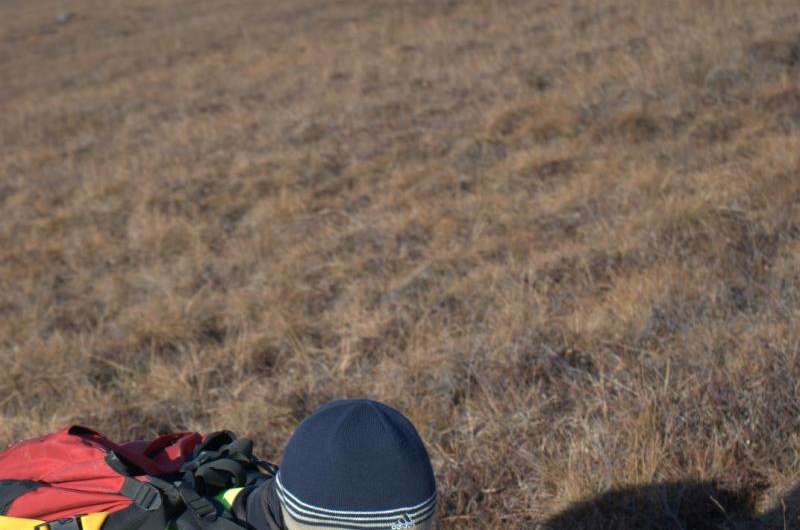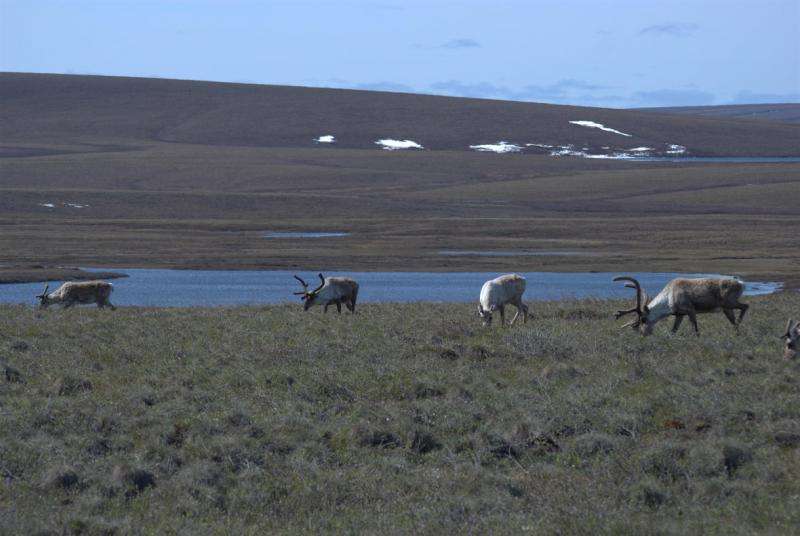Caribou appear to keep up with warming Arctic

Despite recent changes to the growing season for plants in the Arctic, Alaska, caribou appear to have remained in sync with these changes over the last 30 years.
According to a recent study, Alaska caribou do not appear to be facing what is known as a mismatch, created when caribou migrate and give birth to calves at similar timeframes each year, while a warming climate has changed the peak availability of their food to earlier and earlier times of the year.
"We observed long-term changes in temperatures, timing, and the length of the growing seasons, but found little support for a mismatch between caribou and the plants they consume," said Dave Gustine, lead author of the USGS study, but now working with the National Park Service.
For the study, the USGS repeated a 200-km transect along the Dalton Highway on the North Slope of Alaska. The transect was originally established in the late 1970s by the Alaska Department of Fish and Game to understand food important for the Central Arctic herd, which is the primary caribou population inhabiting the area along the Dalton Highway.
"It seems that the mismatch hypothesis may be limited for caribou populations," said Layne Adams, a research wildlife biologist with the USGS and co-author of the study, "but, given the wide variability in the quality of plants used by caribou for food across northern Alaska and the capacity of migratory caribou to shift birthing and summering ranges, we expect a continued and diverse response among populations of caribou into the future."
The new study "Advancing the match-mismatch framework for large herbivores in the Arctic: evaluating the evidence for a trophic mismatch in caribou" was conducted by the U.S. Geological Survey, Alaska Department of Fish and Game and two universities and is published in PLoS One.

More information: David Gustine et al. Advancing the match-mismatch framework for large herbivores in the Arctic: Evaluating the evidence for a trophic mismatch in caribou, PLOS ONE (2017). DOI: 10.1371/journal.pone.0171807
Journal information: PLoS ONE
Provided by United States Geological Survey

















